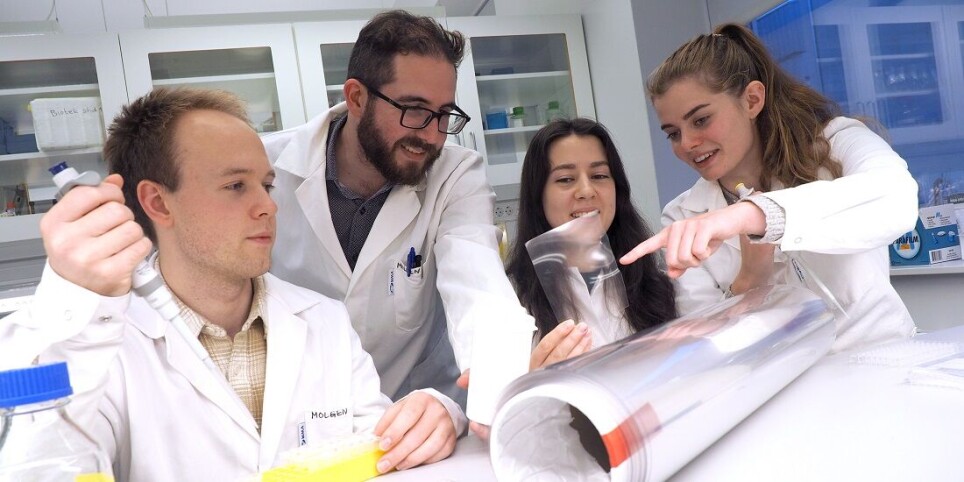THIS ARTICLE/PRESS RELEASE IS PAID FOR AND PRESENTED BY NTNU Norwegian University of Science and Technology - read more

Could enzymes from bacteria and fungi help break down the 380 million tonnes of plastic we produce each year?
Plastic is useful but also poses an environmental problem. Scientists are now using enzymes from bacteria and fungi to break down plastic.
Every year, the world produces 380 million tonnes of plastic. A lot of it ends up in nature and stays there for a long time. It can take 450 years to break down a plastic bottle.
“Plastic is a synthetic material that is challenging to break down,” Gaston Courtade says.
He is an associate professor at NTNU’s Department of Biotechnology and Food Science.
Plastic is found in packaging, toys, decorative items – well, in most categories of products.
“We need technology that enables plastics to be broken down more efficiently to achieve a more sustainable future,” says Courtade.
Finding enzymes that break down plastic
The researchers and students in biotechnology at NTNU have now come a few steps closer to producing enzymes that can break down plastic in an efficient way.
Enzymes are substances that speed up chemical processes without breaking down themselves – like is being done to break down plastic. Courtade is heading the study, and the research team has already come a long way.
“We want to understand the reactions behind the enzymes that can break down plastic,” Courtade says.
The aim is to use enzymes from bacteria and fungi and improve their ability to break down plastic faster.
One challenge is how well these enzymes can bind to plastic. The researchers are therefore looking at ways to use proteins with special binding properties to regulate how the enzymes attach to plastic.
Only part of the solution
However, the danger in this is that more people might then think that it’s no problem to use plastic.
“We hope this doesn’t lead to more people thinking it’s okay to produce more plastic simply because we now have a better way to break down the plastic with the enzymes,” Courtade says. "We’d rather have our research contribute to producing more sustainable by-products. We need to become less dependent on plastics from fossil sources and get better at investing in biotechnological solutions.”
Reference:
Hellesnes et al. Biochemical characterization and NMR study of a PET-hydrolyzing cutinase from Fusarium solani pisi, bioRxiv, 2022. DOI: 10.1101/2022.11.01.514593
Read more content from NTNU:
-
Fish farming is least harmful to the seabed in the north
-
Study: Centralising hospitals has reduced birth mortality
-
Early testing of schoolchildren: “We found absolutely no effect”
-
This determines whether your income level rises or falls
-
Why is nothing being done about the destruction of nature?“We hand over the data, but then it stops there"
-
Researchers now know more about why quick clay is so unstable





































